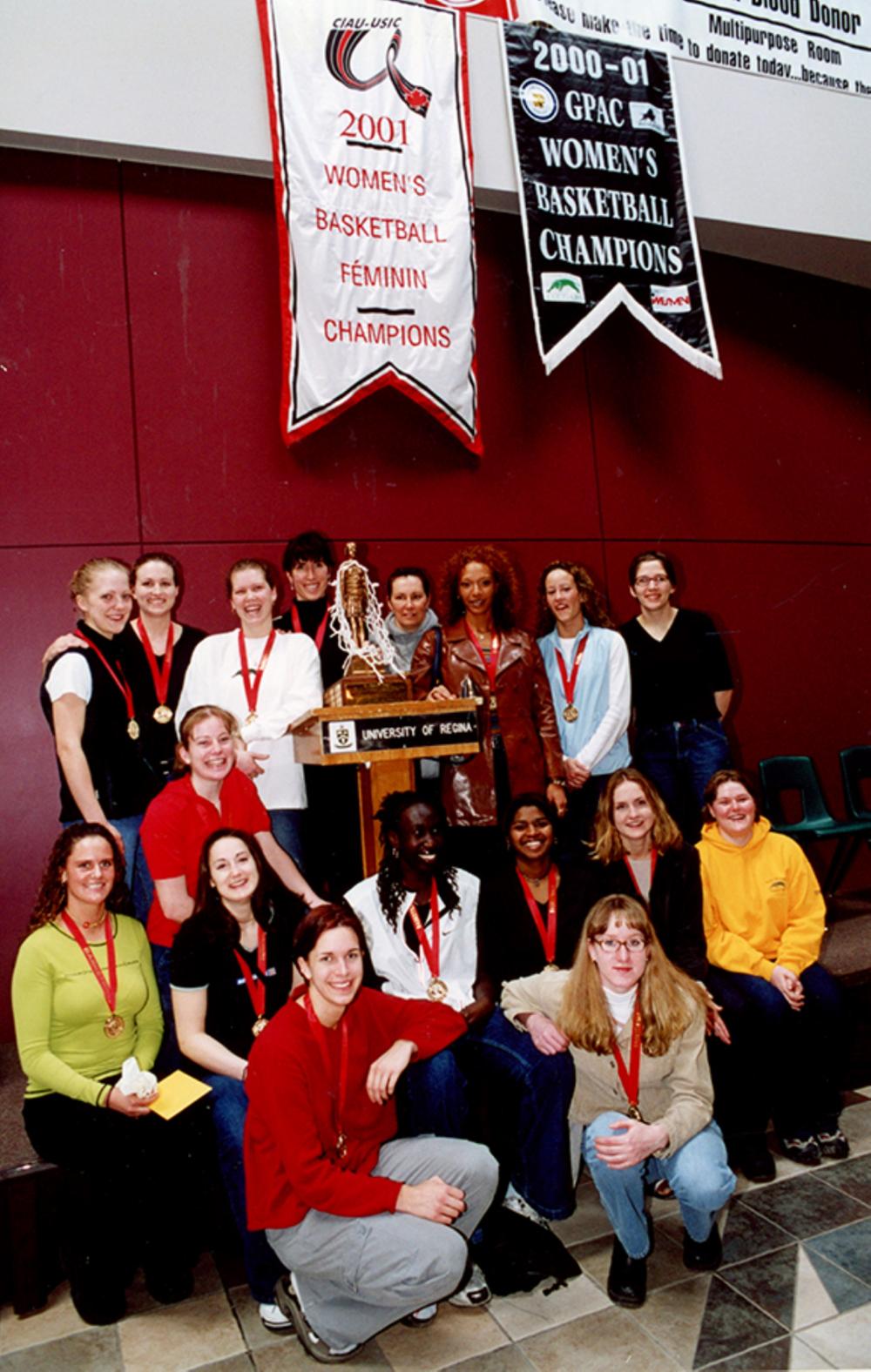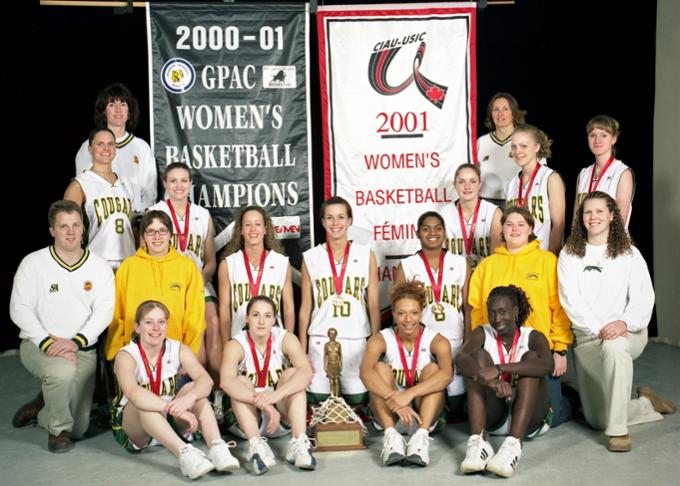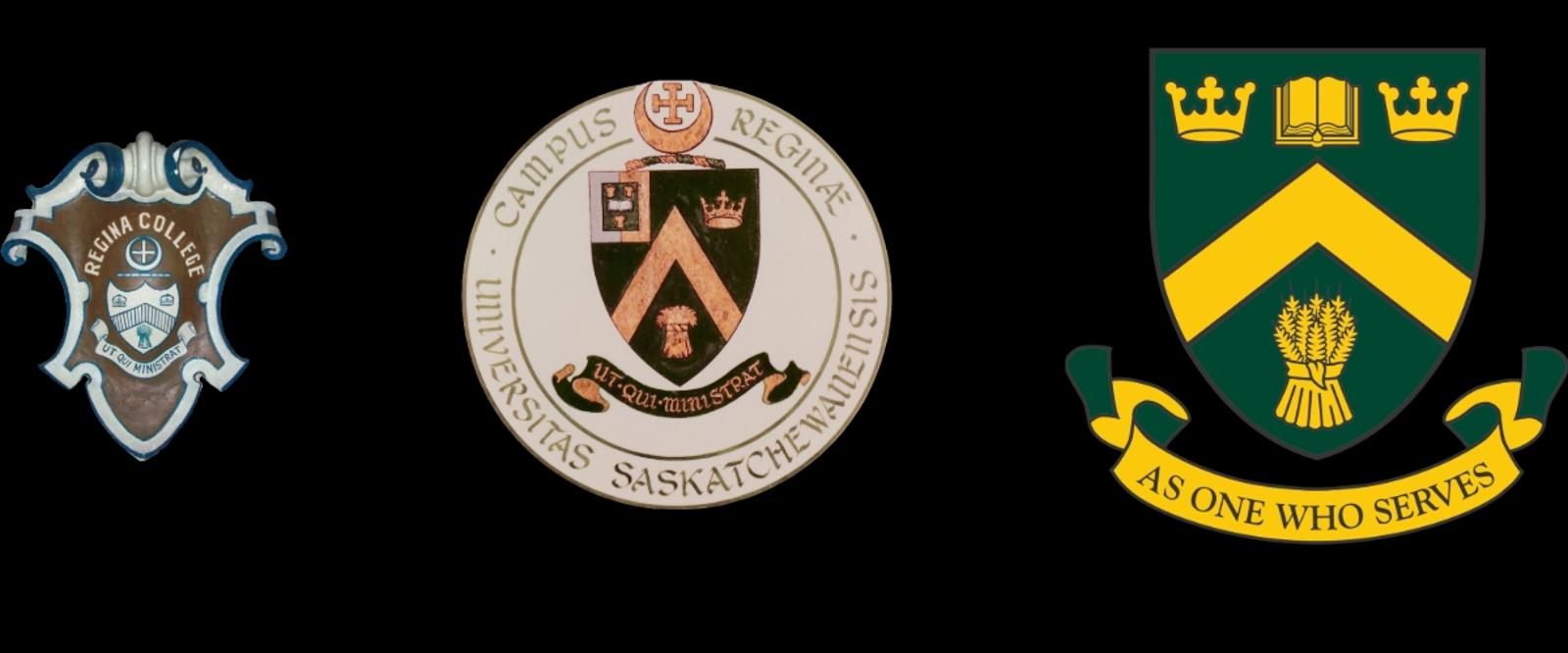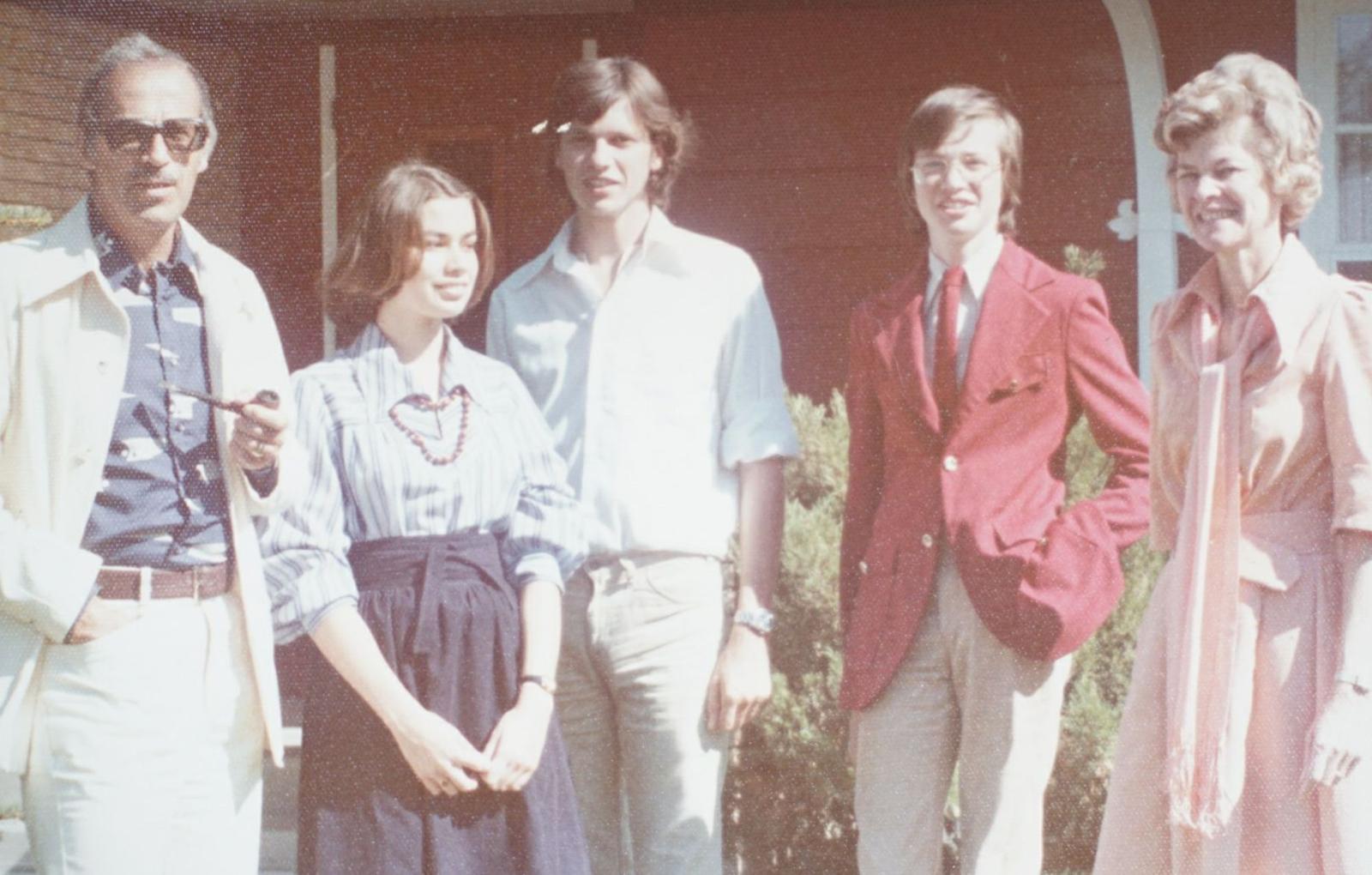Dreams are nice, but untold hours of hard solo work, team practice, excellent coaching, and a bit of luck are what made those dreams come true for the 2000-01 University of Regina Cougars women’s basketball team who had been contending for a national championship for years.
In 2000-2001, the Cougars finally reached their goal and raised the Bronze Baby Trophy to give the University of Regina its first Canadian Interuniversity Athletic Union (CIAU, now USports) basketball title.
Stepping closer to their goal
The Cougars had advanced to the CIAU Final 8 national tournament for three straight seasons but had not advanced to a final. During the 2000-01 season, the experienced team was determined to take that final step. They posted a 20-2 league record and were 30-5 on the season while playing some of the top teams in the country. They were ranked No. 1 in the country for much of the season but headed to the national tournament ranked second.
The Cougars finished the season with 14 consecutive wins and won their third straight Great Plains Athletic Conference (GPAC) title by beating the University of Manitoba in consecutive games to sweep their series. Heather (Dedman) McMurray hit a buzzer-beating shot in the second game to give the Cougars a 61-60 win.
At the CIAU Final 8 tournament in Edmonton, the Cougars comfortably beat McMaster University 93-49 in the national quarter-final with Becky (Poley) Poley-Schutz’s 21 points leading the way.
The semifinal was a rematch from a year earlier when the University of Calgary beat them at the same stage of the tournament. A year later, the Cougars earned a measure of revenge with a 71-67 win over Calgary. Trailing by nine at the half, the Cougars leaned on the experience they gained in previous trips to nationals and went on a 20-7 run to take the lead for good. Cymone (Bouchard) Bernauer had 20 points to lead the Cougars.
Record-breaking number of points scored
In the national final, the Cougars squared off against the hosts from the University of Alberta and secured a 94-85 win. As of their induction in 2022, their record for the most points scored in a women’s national final still stands. Heather (Dedman) McMurray had 24 points in the final and seven different Cougars scored at least 10 points which underscored the depth and balance that was a hallmark of the team.

The winning team – Bronze Baby trophy and medals in hand. Photo courtesy U of R Photography
While the Cougars truly epitomized the definition of a team, they also had a number of players who were singled out for individual honours. Cymone (Bouchard) Bernauer was named the CIAU Championship Tournament’s Most Valuable Player. She and Heather (Dedman) McMurray were also both selected to the CIAU Championship Tournament All-Star Team.
Corrin (Wersta) McCorvey was a second-team CIAU All-Canadian. Wersta and Bree Burgess were first-team All-GPAC all-stars. Cymone (Bouchard) Bernauer was a second-team All-GPAC all-star. Christine Stapleton was named the GPAC Coach of the Year.
History in the making, indeed. The Cougars were named: the Sask Sport Team of the Year in 2001; inducted into the University of Regina Sports Hall of Fame in 2006 and the Regina Sports Hall of Fame in 2008 and, installed in the Saskatchewan Sports Hall of Fame on September 24, 2022.
Calling all U of R Cougars and Rams alumni! As we launch into U of R’s 50 Anniversary year, send your U of R sports memories, photo, videos to 50th@uregina.ca.
Banner Photo: The U of R 2000-01 Cougars women’s basketball team: Sask Sport Team of the Year in 2001; inducted into the University of Regina Sports Hall of Fame in 2006 and the Regina Sports Hall of Fame in 2008; and, installed in the Saskatchewan Sports Hall of Fame on September 24, 2022. Courtesy U of R Photography
About the University of Regina
2024 marks our 50th anniversary as an independent University (although our roots as Regina College date back more than a century!). As we celebrate our past, we work towards a future that is as limitless as the prairie horizon. We support the health and well-being of our 16,700 students and provide them with hands-on learning opportunities to develop career-ready graduates. Our research enterprise has grown to include 21 research centres and 12 Canada Research Chairs and brings in more than $51.2 million in funding annually. Our campuses are on Treaties 4 and 6 - the territories of the nêhiyawak, Anihšināpēk, Dakota, Lakota, and Nakoda peoples, and the homeland of the Michif/Métis nation. We seek to grow our relationships with Indigenous communities to build a more inclusive future.
Let’s go far, together.




